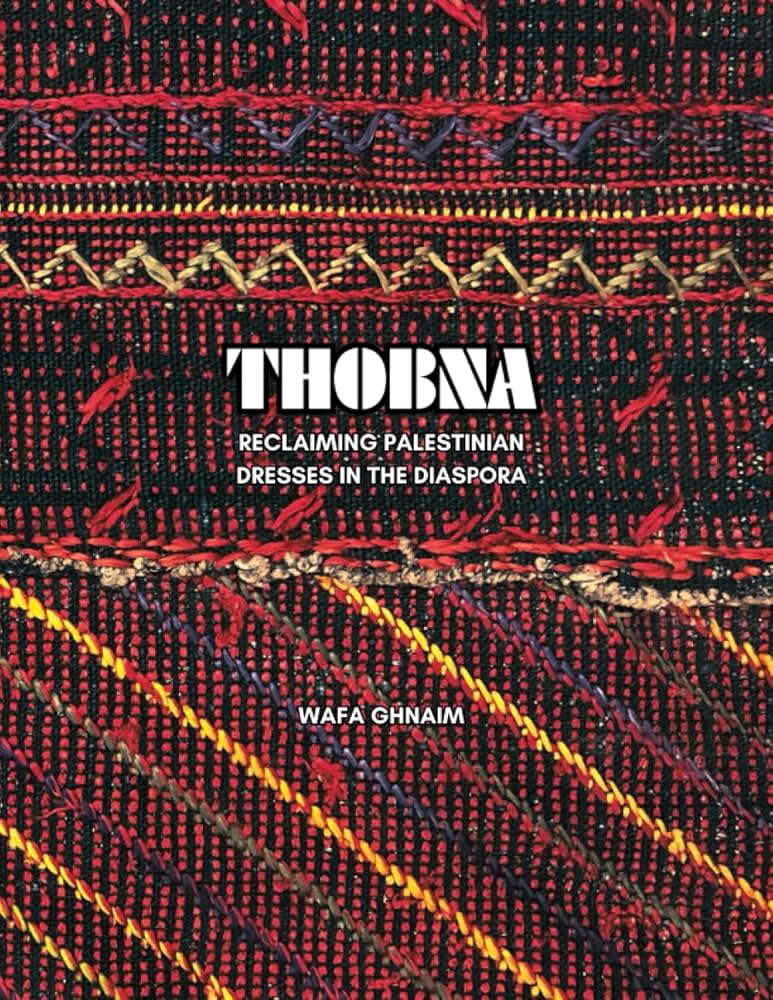
THOBNA: Reclaiming Palestinian Dresses in the Diaspora
In " Reclaiming Palestinian Dresses in the Diaspora" Wafa Ghnaim celebrates messages of freedom, resistance and liberation embedded in Palestinian embroidery produced after the 1948 Nakba. Written and published exactly five years after her first book, “Tatreez & Embroidery and Storytelling in the Palestinian Diaspora” (2018), Ghnaim moves from documenting the oral history and tatreez patterns passed down to her by her mother, award-winning artist Feryal Abbasi-Ghnaim, to cultivating a reclamation process for identifying and rescuing Palestinian dresses in the diaspora in “THOBNA.”
“THOBNA” (Arabic for “our dress”) acknowledges the scholarship of Palestinian Elders that guided Ghnaim’s growth in the field. Representing a major turning point in her career that inspired her study of Palestinian dress history within an academic context, this book focuses on the path a Palestinian dress, or thobe, takes before arriving in a museum collection. Ghnaim details the ethics involved with Palestinian dress reclamation in the United States and the tremendous role museums can play in providing long-term viability for meaningful access to Palestinian dress collections.
Using her extensive knowledge and studies of Palestinian thobes found in various museums, Ghnaim offers 47 pages of detailed patterns, and 20 pages of supplies and technique instruction in adherence to Palestinian tradition. These patterns, digitized especially for “THOBNA,” offer a fresh look at how tatreez was incorporated into Palestinian resistance during the 1980s and beyond. An explicit celebration of Palestinian reclamation, resistance and freedom, “THOBNA” releases after 75 years of Palestinian displacement, dispossession and exile. Ghnaim offers thoughtful insight into the reclamation process of THOBNA in the diaspora, and in the same breath, elevates the many Palestinian women who came before her to lay the groundwork for a stitched path to freedom. In “THOBNA,” Ghnaim reclaims each thobe, one-by-one, as a love letter to the Palestinian community, ensuring that resistance tatreez revives once again in the diaspora to continue to reflect a resilient past and hopeful future. THOBNA
